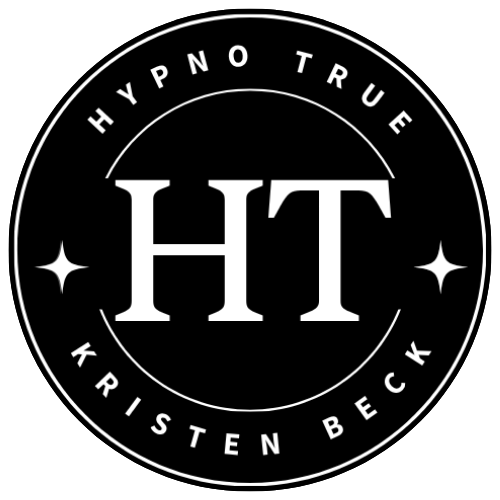Could Hypnotherapy Be the Key?
Depression is one of the most common mental health conditions in the world, affecting over 280 million people. While antidepressants and cognitive behavioral therapy (CBT) are considered the go-to solutions, they don’t work for everyone. That’s why more people are turning to alternative treatments for depression, and one that’s getting serious attention is hypnotherapy.
Let’s explore how hypnotherapy works, what the science says, and whether it might be a better fit for some people than traditional talk therapy.
What Is Hypnotherapy?
Hypnotherapy is a guided practice that uses relaxation, focused attention, and suggestions to help someone access a more open, receptive state of mind. It’s not mind control, and you won’t start clucking like a chicken. In clinical settings, hypnotherapy is used to help people shift deep-seated emotional patterns, beliefs, and habits that may be fueling depression.
This alternative approach is especially helpful for people who’ve tried talk therapy or medication and still feel stuck.
Does Hypnotherapy Actually Work?
Here’s what research has found so far.
In 2019, a large meta-analysis looked at 13 studies involving hypnotherapy and depression. The researchers found that hypnotherapy had a moderate to strong effect, with participants improving more than 76% of those in the control groups. This effect was similar to, and sometimes better than, what’s seen in standard therapies like CBT.
In another study that compared cognitive hypnotherapy to CBT alone, people in the hypnotherapy group showed greater improvements in depression symptoms, anxiety, and hopelessness. These benefits lasted even six to twelve months after treatment.
What does that mean in plain English? Hypnotherapy can hold its own (and often outperform) some traditional methods when it comes to treating depression.
Success Rates: Hypnotherapy vs. Traditional Therapy
Let’s compare the success rates of different depression treatments based on existing research.
- Hypnotherapy: 93% success after 6 sessions
- Behavioral therapy: 72% success after 22 sessions
- Psychoanalysis: 38% success after 600 sessions
So if you’re looking for results with fewer sessions, hypnotherapy comes out ahead. And when you consider time, money, and energy… that matters.
Why More People Are Turning to Hypnotherapy
People are starting to realize that alternative treatments for depression aren’t just “fringe” anymore. They’re practical, research-backed, and in some cases, more efficient. Hypnotherapy is one of the most talked-about because it gets to the root.
Here’s why people are giving it a second look:
- It works with the subconscious mind, where a lot of emotional patterns are stored
- It can help break negative thinking loops that keep depression alive
- It teaches people to shift their mindset from helplessness to empowerment
- It can be used alongside other treatments like meds or therapy
- It’s drug-free and has no physical side effects
Who Should Consider Hypnotherapy?
Hypnotherapy may be a strong option for people who:
- Haven’t seen much progress with traditional therapy
- Want a faster, more focused approach
- Struggle with subconscious self-sabotage or past trauma
- Feel emotionally stuck, even when life looks fine on the outside
Of course, it’s not a good fit for everyone. People with certain mental health conditions — like psychosis or dissociative disorders — may need a more specialized approach. Always talk to a licensed professional before starting anything new.
How to Find a Reputable Hypnotherapist
If you’re curious about using hypnotherapy as one of your alternative treatments for depression, finding the right practitioner is key.
Look for someone who:
- Is certified by a recognized board, like the American Society of Clinical Hypnosis
- Has experience treating depression or related emotional issues
- Offers an initial consultation so you can get a feel for their style
- Uses clinical or cognitive hypnotherapy, not just general relaxation techniques
You want someone who takes the work seriously — and tailors it to you.
What Happens in a Typical Session?
A hypnotherapy session usually starts with a conversation about your goals and challenges. Then, you’ll be guided into a deeply relaxed state — similar to meditation or daydreaming. From there, the therapist will use specific language, metaphors, and suggestions to help shift beliefs or emotional patterns that may be holding you back.
You stay in control the whole time. Many people describe it as calming, eye-opening, and empowering.
Real-Life Examples of Success
While everyone’s journey is different, here are a few common depression-related issues that hypnotherapy has helped with:
- Releasing unresolved grief or past trauma
- Overcoming feelings of guilt or worthlessness
- Creating new thought habits that build self-esteem
- Reducing emotional dependency or people-pleasing behaviors
- Letting go of perfectionism and fear of failure
It’s not magic… it’s mental reprogramming. And it works when you work with it.
The Bottom Line
Depression is real. It can make everyday life feel like a mountain. But if standard treatment hasn’t worked for you — or you want to add something new to your healing journey — alternative treatments for depression like hypnotherapy might be worth exploring.
It’s backed by research. It goes deeper than surface-level talk. And it’s helped thousands of people shift their lives when nothing else seemed to work.
You don’t have to settle for “managing” your depression. You can actually transform it.
Sources:
- Milling, L. S., Valentine, K. E., & McCarley, H. S. (2019). A Meta-Analysis of Hypnotic Interventions for Depression Symptoms. International Journal of Clinical and Experimental Hypnosis
- Alladin, A., & Alibhai, A. (2007). Cognitive hypnotherapy for depression: An empirical investigation
- Fuhr, K., et al. (2021). Efficacy of hypnotherapy compared to cognitive behavioral therapy
- The Road Hypno (2020). Hypnotherapy vs. Talk Therapy Outcomes





